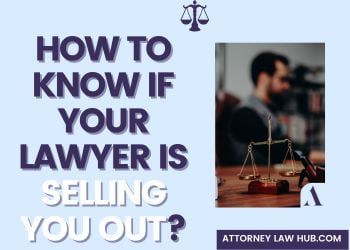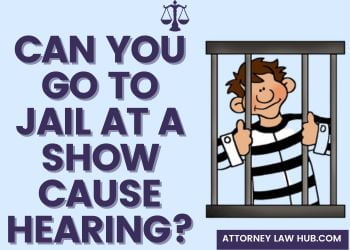When you hire a lawyer, you should talk with them to become more familiar with each other. Ensure you know the person you are assigning your case to before assigning it.
This information can help you determine whether or not your lawyer is selling you out. As a first step, you will observe their behavior during court proceedings and decide whether they take money from the other side or share details about your case with them.
Observe a lack of responsiveness or communication first. It could be a red flag if your lawyer consistently fails to keep you informed or ignores your inquiries. Several signs also indicate such behavior.
A lawyer who fails to prepare or make an effort in your legal matters may not be prioritizing your best interests. That may also be a concern if your lawyer represents both sides in a dispute or engages in questionable financial arrangements.
Asking another attorney for a second opinion can clarify and help you decide whether your lawyer is truly looking out for your interests.

When your attorney sells you out?
When you discover your attorney sold you out, it can be incredibly distressing and alarming.
You can find it in cases where your lawyer betrays your trust and acts against your best interests. When suspecting that your attorney has sold you short, consider these specifics:
Lack of Communication
Lack of communication is one of the critical signs. You may not receive updates on the progress of your case from your attorney, or they may show disinterest in your concerns.
Lack of communication can leave you feeling abandoned and unsure of the status of your case.
Failure to Meet Deadlines
This is another red flag if your lawyer consistently fails to meet deadlines or file necessary documents on time. You could lose your case due to this negligence.
Financial Misconduct
An attorney who acts inappropriately concerning your finances is breaching your trust.
You may be charged for services you did not receive, overcharged, or charged fraudulently for services you did not receive.
As a result of these actions, you will lose financial resources and face severe ethical and legal problems.
Unethical Practices
Taking advantage of you is a sign of your attorney selling you out if they violate ethical standards, such as breaching attorney-client privilege, using confidential information without your consent, or engaging in dishonest tactics. It can seriously undermine your trust and negatively impact your case.
It is essential to consult with another attorney to discuss your concerns and evaluate your legal options if you suspect your attorney is selling you out.
They can provide guidance and take corrective action, such as filing a complaint against the relevant bar association or pursuing legal action for professional misconduct.
What to do when your lawyer stops communicating with you?
It can be frustrating and worrying when your lawyer fails to communicate with you. Documenting your efforts to reach out to them to address this issue is essential.
Write a letter requesting an update and expressing your concerns.
Call if necessary and request an in-person meeting if all else fails. A second attorney could provide advice and protection if your lawyer remains unresponsive.
Any attorney-client relationship requires effective communication, so proactive steps are crucial for resolving the breakdown and ensuring proper representation.
Signs of a wrong attorney

Your legal interests are at risk if you fail to recognize the signs of the wrong attorney.
Lack of communication or responsiveness, unprofessional behavior, and inadequate preparation are common indicators.
A lousy attorney may not prioritize your case, fail to keep you informed, or lack dedication and diligence. You should also be concerned if your lawyer pressures you into making decisions or disregards your concerns.
A second opinion can help you determine whether to remain with your current attorney or seek alternative representation by trusting your instincts.




